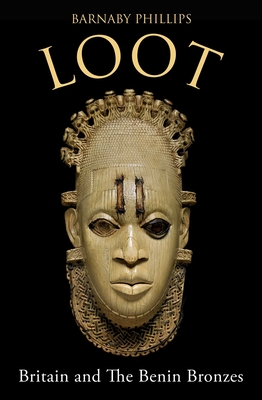'A fascinating and timely book.' William Boyd 'Gripping...a must read.' FT 'Compelling...humane, reasonable, and ultimately optimistic.' Evening Standard '[A] valuable guide to a complex narrative.' The Times In 1897, Britain responded to the killing of a group of officials by razing an empire to the ground. The men had been travelling to the ancient Kingdom of Benin, in what is now Nigeria, when they were ambushed and killed by local soldiers. Just six weeks later, the British had exacted their revenge, set Benin aflame, exiled the king and annexed the territory. They also made off with some of Africa's greatest works of art. This is the story of the 'Benin Bronzes', their creation, removal, and what should happen to them now. When first exhibited in London they caused a sensation and helped reshape European attitudes towards Africa, challenging the prevailing view of the continent as 'backward' and without culture. But seeing them in the British Museum today is, in the words of one Benin City artist, like 'visiting relatives behind bars'. In a time of fevered debate about the legacies of empire, loot, museums and history, what does the future hold for the Bronzes themselves?
'A fascinating and timely book.' William Boyd 'Gripping...a must read.' FT 'Compelling...humane, reasonable, and ultimately optimistic.' Evening Standard '[A] valuable guide to a complex narrative.' The Times In 1897, Britain sent a punitive expedition to the Kingdom of Benin, in what is today Nigeria, in retaliation for the killing of seven British officials and traders. British soldiers and sailors captured Benin, exiled its king and annexed the territory. They also made off with some of Africa's greatest works of art. This is the story of the 'Benin Bronzes' their history before the British took them, their fate since 1897, and the intense debate about their future. When they were first displayed in London their splendour and antiquity challenged the prevailing view of Africa as a continent without culture or history. They are now amongst the most admired and valuable artworks in the world. But seeing the Benin Bronzes in the British Museum today is, in the words of one Benin City artist, like 'visiting relatives behind bars'. In a time of huge controversy about the legacy of empire, racial justice and the future of museums, what does the future hold for the Bronzes?
'A fascinating and timely book.' William Boyd 'Gripping...a must read.' FT 'Compelling...humane, reasonab














